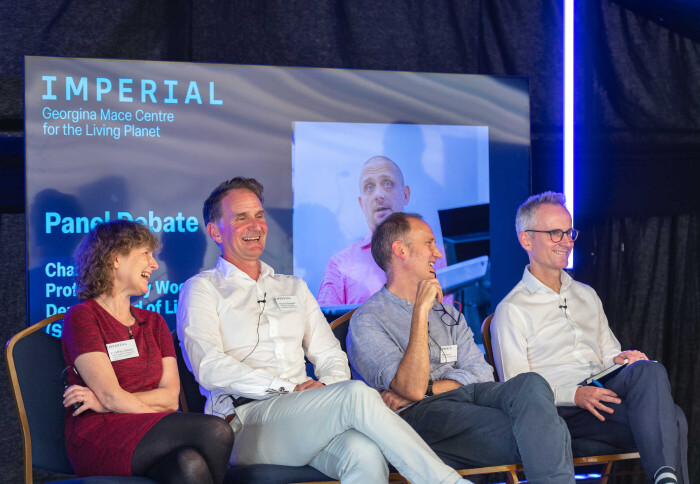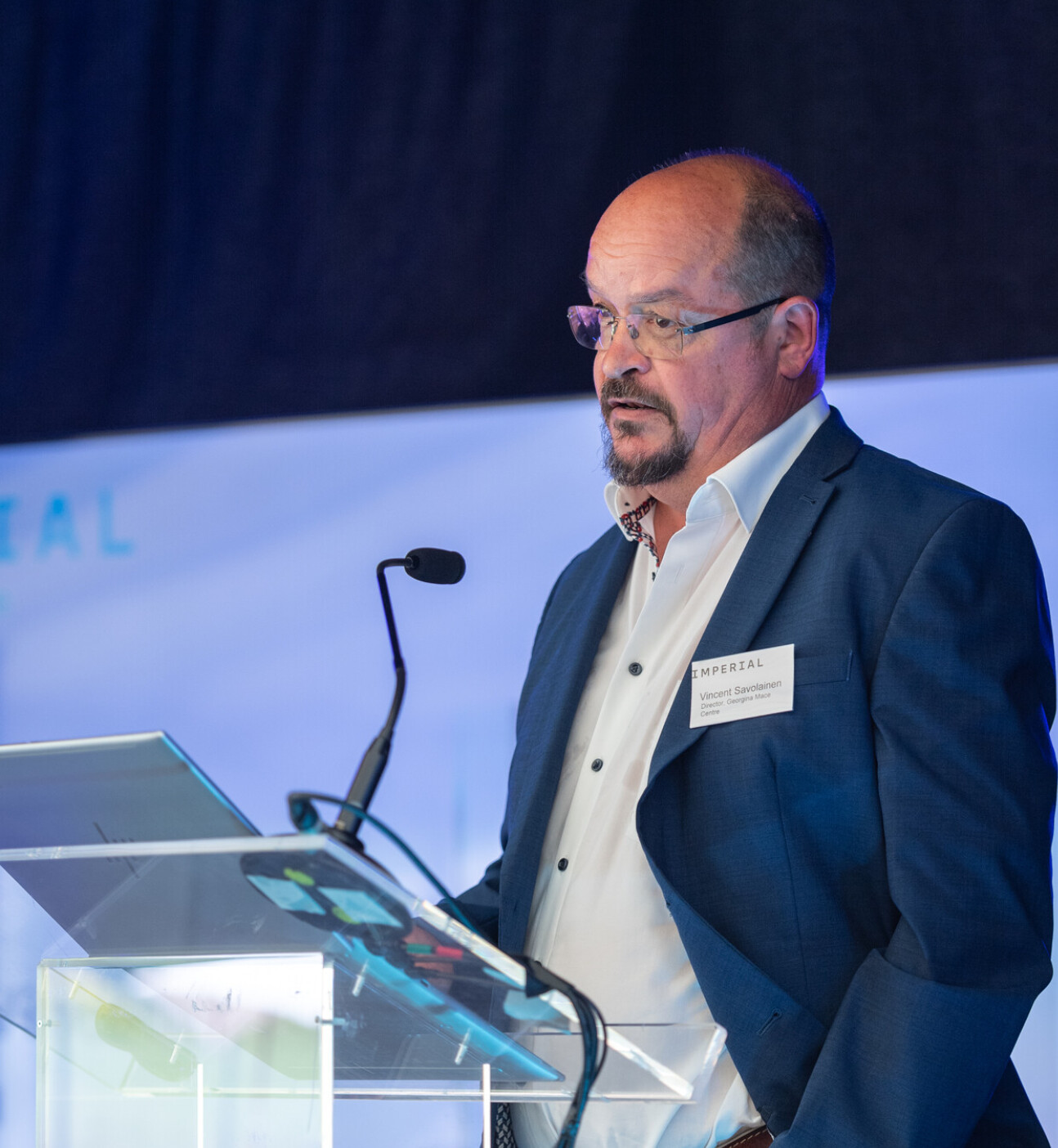Georgina Mace Centre Debate 2024 – securing a bright future for our planet
by Emily Govan

This year’s Georgina Mace Centre Debate looked at the effectiveness of international targets and treaties and how we can improve results.
The debate was held on 18 July in Imperial’s beautiful Silwood Park campus. COP28 had provided the inspiration for the topic of the debate; the ambitious goal had been agreed to designate 30% of Earth's land and ocean area as protected areas by 2030 – the so-called ’30 by 30’ worldwide initiative. But how achievable is this target and what obstacles stand in the way? Policymakers and scientists were brought together to find out. Along the way they discussed ways to mobilize actions towards advancing science-based solutions to secure a bright future for Planet Earth.
"Imperial, with its cutting-edge research and world-renowned expertise in STEM, is uniquely positioned to inform and influence policymakers on the critical importance of biodiversity." Professor Maggie Dallman Vice-President (International)
Imperial’s Georgina Mace Centre for the Living Planet tackles some of the greatest environmental challenges. The Centre is dedicated to Professor Dame Georgina Mace FRS, who pioneered the development of universal criteria for listing the world’s threatened species in the International Union for the Conservation of Nature (IUCN) Red list. This led in 2002 to the global signatories to the United Nations Convention on Biological Diversity (CBD).

Professor Vincent Savolainen, Centre Co-Director, said: ‘"People understand the urgency of taking action on climate change but are less engaged with the issue of biodiversity. Better communication from scientists can help change this."
The evening began with an introduction from Professor Maggie Dallman, Vice-President (International).
Professor Dallman said: ‘Imperial College London, with its cutting-edge research and world-renowned expertise in STEM, is uniquely positioned to inform and influence policymakers on the critical importance of biodiversity. Our work not only highlights the value of preserving diverse ecosystems but also provides evidence-based recommendations to guide sustainable policy decisions.’
This was followed by introductions from Centre Co-Directors Professor Savolainen and Professor Mat Fisher, followed by short talks from the guest speakers:
- Professor Richard Bardgett, CBE, Professor of Ecology – University of Manchester
- Dr Mike Barrett, Executive Director of Conservation and Science – WWF-UK
- Professor Dame EJ Milner-Gulland, Tasso Leventis Professor of Biodiversity - University of Oxford
- Professor Gideon Henderson, Chief Scientific Adviser, Department of Environment, Food and Rural Affairs
The talks were followed by a Q&A session chaired by Professor Guy Woodward, Deputy Head of Department, Silwood Park. And Professor Dan Davis, Head of the Department of Life Sciences, gave the vote of thanks.
Professor EJ Lilnder-Gulland said: ‘It was a great pleasure to visit Silwood Park, where I was a faculty member for many years, to hear about its vibrant research community, and to witness the interest and enthusiasm of colleagues from Imperial College and beyond in the work that it is undertaking. The Georgina Mace Centre for the Living Planet, which cuts across campuses and has a very topical interdisciplinary remit, is a world-leading research centre of which I am sure she would have been hugely proud.’
Article text (excluding photos or graphics) © Imperial College London.
Photos and graphics subject to third party copyright used with permission or © Imperial College London.
Reporter
Emily Govan
Department of Life Sciences
